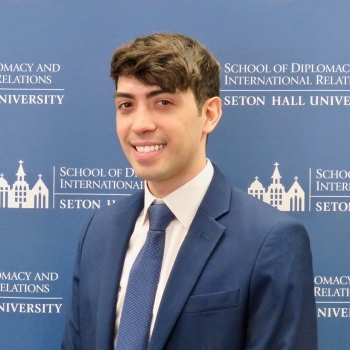
Millions in India Face Statelessness as Political Party Calls for Hindu Supremacy
On July 30, 2019, the government of Prime Minister Narendra Modi released a draft of the National Register of Citizens (NRC) where millions from the northeastern state of Assam in India- many Muslims- were left out. While some news outlets claim it is 4 million, and others 2 million, the essential issue is that more than one million Indians may have lost their citizenships. Why is this occurring, and what are the repercussions?
Assam shares borders with Bangladesh, a predominantly Muslim country. Thus, following the beginning of the Bangladesh Liberation War in 1971, many Bengali-speaking people crossed the border into India. These migrants have proved a potent political issue for PM Modi’s Hindu nationalist Bharatiya Janata Party (BJP), which has an agenda that emphasizes Hindu primacy in India.
To oust all Bengali-Muslims migrants, who the BJP refers to as “infiltrators,” the government of PM Modi implemented the National Register of Citizens, a register of all 33 million people living in Assam and only available in that state. The register is an exercise to identify Muslims in Assam and catalog all legal residents, but PM Modi has the intent of extending it to all of the country. These have been three excruciating years, as millions had to find and submit documents in Assamese, Bengali, and English going back 60 years to prove links to their parents. Households have had to trace their ancestors, find paperwork linking them, and submit intricate family trees listing siblings and grandchildren over four generations to prove they are not illegal. The process has been particularly difficult for the poor and uneducated, who do not know how to navigate the complexities of the exercise.
A draft of the NRC was released on July 30 and twelve percent of the applicants did not make the cut. Those excluded from the final registry will have four months to appeal before quasi-legal tribunals. If their bids fail, the consequences could be grave as families are at risk of being split apart, detained, incarcerated, and even being chased out to Bangladesh. Incidentally, a country many have never set foot in.
As reported by the Washington Post, Rima Roy Saha, a 25-years-old in the town of Barpeta Road, learned that she was left off the final list, even though her two sisters – who had provided the same documents – were included. “I’m really worried now,” she said. If her appeal fails, “I will be declared a foreigner.” On the other hand, Harsh Mander, a human rights activists and author, called for clarity on the part of the government that has not fully decided on the steps to follow after the final list is released. “Are you going to put millions of people in detention? Will there be concentration camps? Or are you going to throw them in the sea?”
While the future for those who were determined illegal under the NRC remains unclear, India is building in Assam its first-ever mass detention center. The camp, currently intended for at least 3,000 detainees, is an area equivalent to about seven soccer fields. Because the Supreme Court set the detention period of foreigners at 3 years, the camp will have a school, a hospital, and a recreation area. Life will not be pleasant as their lives are about to be upended, uprooted, and paused. A high boundary wall and watchtowers will also surround them with a security force. The repercussions of the camp, and the possibility of others, are yet to be known.
We will ensure implementation of NRC in the entire country. We will remove every single infiltrator from the country, except Buddha, Hindus and Sikhs: Shri @AmitShah #NaMoForNewIndia
— BJP (@BJP4India) April 11, 2019
Rights groups worry that the list and PM Modi’s call for Hindu supremacy could set off a chain of events similar to the Rohingya crisis in Myanmar in 2017 when roughly 750,000 members of the Muslim Rohingya minority were persecuted, stripped of their Burmese citizenship, and forced to flee to Bangladesh. In a tweet posted on April 11, 2019, Modi’s Home Minister, Amit Shah, wrote: “We will ensure implementation of NRC in the entire country. We will remove every single infiltrator from the country, except Buddha, Hindus and Sikhs: Shri @AmitShah #NaMoForNewIndia.”
The UN High Commissioner for Refugees, Filippo Grandi, expressed his concern on September 1, 2019, over the publication of the NRC and the consequences for the Indians in Assam, and the human rights record in India. Beyond his statement, Grandi clarified that India is a sovereign country and, as such, has the right and authority to determine who is an India national. However, India can lead the process in a civilized and humane manner as “to refrain from detaining or deporting anyone whose nationality has not been verified to through this process.” He further offered UNHCR assistance to determine people’s nationality and avoid statelessness in accordance with its mandate and international standards.
Beyond these statements from UNHCR, Filippo Grandi and other UN experts, the United Nations has not taken any more steps to avoid a situation like the one in Myanmar. This situation is recent, and more is to follow. Nonetheless, preventing diplomacy as the one discussed at the UN on July 19, 2019, should be exercised to further exchange effective conflict prevention policies.

